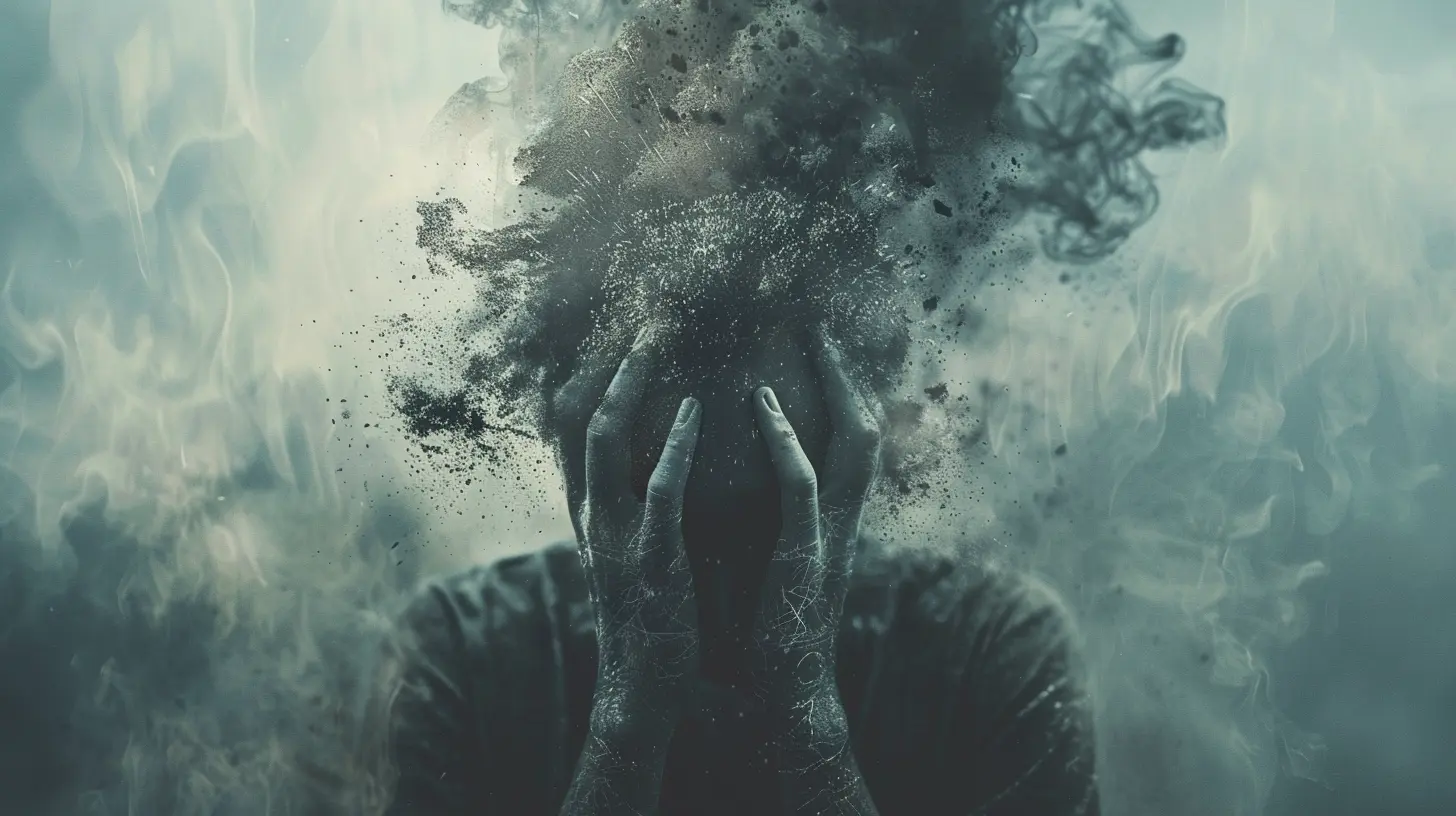The Intersection of Trauma and Mental Illness
12 November 2025
Let’s face it—life isn’t always kind. Some of us go through things that leave deep emotional scars. And whether it’s a single traumatic event or years of ongoing stress, trauma can dig its claws into the mind, often laying the groundwork for mental illness. The truth is, trauma and mental illness often walk hand-in-hand like shadowy twins, each influencing and feeding off the other. But how exactly are they connected? What happens in the brain and body when pain goes unprocessed? And most importantly, what can we do about it?
In this article, we’re diving head-first into the complex, often misunderstood intersection of trauma and mental illness. If you’ve ever wondered how trauma impacts your mental health or why you might still be struggling years after a difficult experience, you’re in the right place.
What Exactly is Trauma?
Before we link trauma to mental illness, let’s get on the same page about what trauma actually is. Most people think of trauma as coming from big, dramatic experiences—war, abuse, car accidents. And yes, those are all traumatic. But trauma can also come from things like emotional neglect, chronic stress, bullying, or the sudden loss of a loved one.Trauma doesn’t just come from what happens—it also depends on how your brain and body respond to it.
Think of trauma like a splinter. If it's small and gets removed quickly, you may barely notice it. But if it's ignored? It festers, creates an infection, and causes much more pain down the road.
The Brain on Trauma: What Happens Inside?
Our brains are wired to keep us alive, not necessarily happy. When we experience trauma, our survival instincts kick in full force. The amygdala (your brain’s alarm system) goes into overdrive, while the prefrontal cortex (your rational, thinking brain) often takes a back seat.Here’s how trauma leaves its footprints:
- Hyperarousal: Your brain stays stuck in "danger mode." You're jumpy, anxious, maybe even paranoid.
- Dissociation: On the flip side, some people mentally "check out" during trauma and continue to do so long after it's over.
- Memory Disruption: You might forget parts of the trauma or relive it as if it’s happening again (hello, flashbacks).
Your brain literally rewires itself to adapt to danger, but when the danger stops and the brain doesn’t reset, that's when mental illness can creep in.
The Hidden Link: How Trauma Leads to Mental Illness
So, when does trauma cross the line into mental illness?It’s different for everyone, but repeated or unresolved trauma often leads to serious psychological struggles. Here are a few common links between trauma and mental illness:
1. Post-Traumatic Stress Disorder (PTSD)
PTSD is the textbook example of trauma turning into mental illness. It’s not just for veterans—it can affect anyone who’s gone through something terrifying or overwhelming.Key signs of PTSD include:
- Re-experiencing the trauma through nightmares or flashbacks
- Avoiding reminders of the event
- Emotional numbness
- Hypervigilance or extreme alertness
PTSD doesn’t always show up right away. Sometimes it lurks under the surface for months or years.
2. Depression
Trauma can shake your sense of safety, identity, and self-worth. It’s no surprise that this often leads to depression.A history of trauma can make it harder for someone to feel joy, hope, or connection. You may find yourself drained, disinterested in life, or constantly self-critical.
3. Anxiety Disorders
That constant state of high alert? It doesn’t just go away. People with trauma histories often deal with generalized anxiety, panic attacks, or even social anxiety. Their nervous system is on edge, waiting for the next threat—whether it’s real or not.4. Substance Use Disorders
When emotional pain feels unbearable, people often turn to drugs or alcohol to numb the feelings. This is especially common among trauma survivors. The temporary relief can spiral into addiction, creating a dangerous cycle that’s tough to break.5. Borderline Personality Disorder (BPD)
There’s also a strong correlation between childhood trauma (especially neglect and abuse) and BPD. People with BPD often struggle with emotional regulation, identity, and abandonment fears—all of which can stem from early trauma.
Childhood Matters: Trauma in Early Life vs. Adulthood
Trauma experienced in childhood can have a completely different impact than trauma in adulthood. When you’re a kid, your brain is still developing. So, early trauma can actually shape the way your nervous system and personality form.This is where the concept of Adverse Childhood Experiences (ACEs) comes in. The more ACEs you have—like abuse, neglect, or having a caregiver with mental illness—the higher your risk of developing mental health issues later in life.
Think of a young tree growing in rocky soil. It may still grow, but it’ll be twisted, fragile, and prone to breaking in bad weather. That’s how early trauma affects development.
Complex Trauma: When It’s More Than One Event
Sometimes trauma isn’t just one terrible moment—it’s a buildup over time. This is often referred to as complex trauma or C-PTSD. It’s common in situations like:- Long-term domestic abuse
- Childhood neglect
- Human trafficking
- Growing up in a violent or unstable household
Complex trauma doesn’t just impact memory or mood—it can affect your whole identity. A person might feel broken, ashamed, or disconnected from themselves and others for years.
Not Everyone Develops Mental Illness—Why?
Now, here’s an interesting twist: not everyone who goes through trauma develops a mental illness. Why is that?The answer lies in what's called resilience.
Some factors that boost resilience include:
- Strong social support
- A sense of purpose or spirituality
- Safe environments
- Access to mental health care
- Healthy coping strategies (like exercise, journaling, or therapy)
Resilience isn’t something you’re born with—it’s something you build. Like a muscle, the more you work it, the stronger it gets.
Healing Is Possible: Therapy and Recovery
Okay, so now we know trauma can cause a mess in the mind. But here’s the good news—healing is absolutely possible.Therapy is the front line in healing trauma. And it’s not one-size-fits-all. Different people respond to different approaches.
1. Trauma-Focused Cognitive Behavioral Therapy (TF-CBT)
This therapy helps replace toxic thought patterns with healthier ones, while processing the trauma in a safe, structured way.2. Eye Movement Desensitization and Reprocessing (EMDR)
It might sound weird, but EMDR uses eye movements to help your brain reprocess traumatic memories. Many people see huge improvements in just a few sessions.3. Somatic Experiencing
This focuses on the body’s response to trauma. Since trauma gets stored in the nervous system, body-based approaches can be incredibly powerful.4. Medication
While meds don’t "cure" trauma, they can be a helpful tool for managing symptoms like anxiety, depression, and sleep disturbances.And let’s not forget the basics—sleep, eating well, movement, connection. These aren’t just self-care buzzwords; they’re vital for mental health recovery.
You’re Not Alone
If you’re struggling with the impact of trauma, the most important thing to understand is this: you are not broken, and you are not alone. What happened to you is not your fault—but healing is your responsibility. And you can start at any time.Trauma might have shaped your story, but it doesn’t have to write your future.
Final Thoughts
The intersection of trauma and mental illness is a winding, messy road that millions walk every day. It’s not easy to untangle, but the more we understand it, the better equipped we are to heal ourselves and support others.If this article resonates with you, consider reaching out to a mental health professional. Talking about your trauma won’t erase it—but it can start the process of transforming pain into power.
all images in this post were generated using AI tools
Category:
Mental IllnessAuthor:

Gloria McVicar
Discussion
rate this article
1 comments
Mia Duffy
Thank you for shedding light on this important topic. Understanding the link between trauma and mental illness is crucial for healing.
November 15, 2025 at 5:37 AM

Gloria McVicar
Thank you for your insightful comment! I'm glad you found the topic important. Understanding this connection is indeed vital for effective healing.


